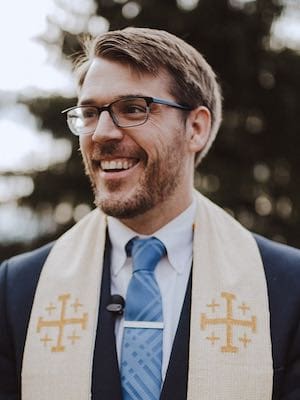I’m finding myself in a liminal space, reflecting as I gear up for another semester of marriage, school, ministry, recruiting, traveling, speaking, learning, preaching and pastoring.
And I’m noticing a trend – it’s difficult to live out of my “best” self.
In other words, the rat race of life, scheduling, recruiting and preaching break me down, loosen my screws and distort my perception of productivity.
I think I’m managing but in reality I’m coping. I replace peace with prestige and tranquility with titles.
I get absorbed in what I need to get done and overlook or dismiss the people closest to me. I get angry when something causes me to look bad and get upset with myself for getting angry.
Reflecting on this anger makes me hate myself. Hating myself causes me to doubt my ability to perform, which causes me to distrust God’s calling on my life, which generates endless insecurities about my own belovedness.
In other words, I’m constantly living out of ego and insecurity.
I respond by presenting myself to be invincible, fearing my brokenness is too repulsive and fearing the world won’t want me to be who I think I need to be in order to feel whole.
In short, I fear I don’t count for anything. So I react to this anxiety with a kind of pathological self-obsession.
My insecurities think nobody cares about me, while my ego places me at the center of my own alternate universe. And ironically both of these voices still cause me to think nobody is noticing.
In Dallas Willard’s book, “The Divine Conspiracy,” he words my symptoms perfectly: “Egotism is a reaction to anxiety about whether one really does count. It is a form of acute self-consciousness … It is a desperate response to the need we all have to count for something and be held to be irreplaceable, without price.”
Needless to say, I feel like my own worthiness has a price. If I achieve enough, take on enough projects, make good enough grades, preach well enough, tell funny enough stories, then somewhere somebody will notice and tell me I’m worthy.
They’ll tell me I’m irreplaceable. They’ll tell me I’m loved.
And I’m not sure I’m the only one living this way. A lot of us seem to seek the approval of others while living with the anxiety that we don’t measure up.
We hope to be recognized for our gifts and to be given a platform to share them with the world while avoiding the shadow sides of our lives.
And that’s the peculiar thing about ego and insecurity. Neither one of them leaves room for exploring the shadow, sinful, gross, dark corners of who we are. They just cover them up.
So we never talk about the feelings of unworthiness we all carry. I guess if we did we’d realize we aren’t invincible.
If we realized that, I guess we’d realize we’re actually wounded, which means we’re in need of a healer/savior.
If we realized that, I guess we’d realize we ourselves aren’t saviors.
If we realized that, I guess we’d humble ourselves enough to allow God to speak into our lives, which ironically is what we preach from our platforms.
This lifestyle is exhausting. I desperately wish I could live out of my “best” self.
But I’m not sure I’ve ever met him. I know he doesn’t worry about ego or insecurity. He claims his belovedness from God and lives in it each day with reckless abandonment. He knows that his shadow side, his woundedness, is part of being human and it’s OK if someone finds out about it.
So that’s where I’ll start. I’ll start by exploring and examining the shadow sides of my life.
If I can know myself better, then I can know God better. If I can know God better, then I can help others find God, too. If I can help others find God, then I’m no longer the center of my own universe.
If I can stop being the center of my own universe, then maybe I’ll be able to see God noticing me and telling me I’m worthy.
I’m irreplaceable. I’m loved.
J. BarrettOwen is the admissions associate at the McAfee School of Theology at Mercer University and pastor of National Heights Baptist Church in Fayetteville, Ga.
Senior pastor of First Baptist Waynesboro in Waynesboro, Virginia. He is a member of Good Faith Media’s strategic advisory board.

